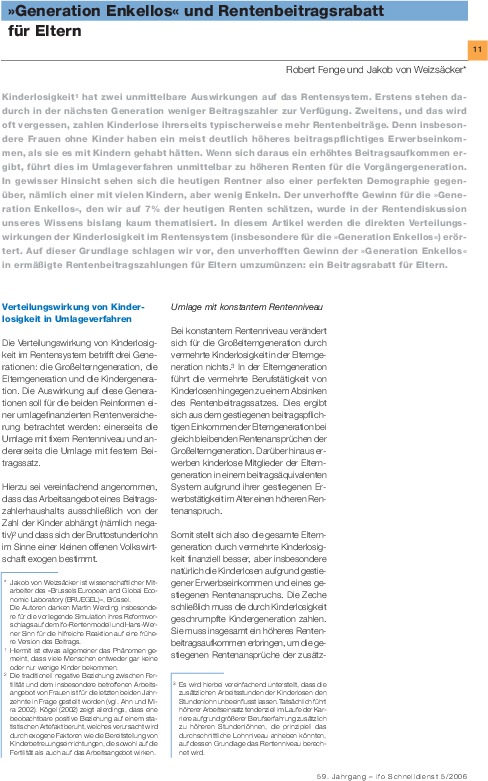External Publication
“Generation Enkellos” und Rentenbeitragsrabatt für Eltern
Jakob von Weizsäcker and Robert Fenge argue that there are two main effects of today’s low fertility rates. It is well known that they will lead to lower pay-as-you-go pensions in the future. At the same time, lower fertility today increases today‘s pensions since people without children work more and therefore pay higher pension contributions. […]
Jakob von Weizsäcker and Robert Fenge argue that there are two main effects of today’s low fertility rates. It is well known that they will lead to lower pay-as-you-go pensions in the future. At the same time, lower fertility today increases today‘s pensions since people without children work more and therefore pay higher pension contributions. Weizsäcker and Fenge estimate that the second effect boosts German public pensions by 6 percent. Since this windfall was unexpected and unintended, they propose to eliminate it and transfer the funds to young families with children instead.
Published in ifo Schnelldienst 5/2006










